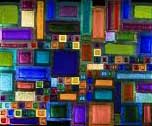 In 1950 Harvard professor David Riesman published a groundbreaking book called The Lonely Crowd. His premise was that the modern corporate economy and the emerging suburban middle class were irrevocably altering the national character, encouraging Americans to trade rugged individualism for sameness and standardization.
In 1950 Harvard professor David Riesman published a groundbreaking book called The Lonely Crowd. His premise was that the modern corporate economy and the emerging suburban middle class were irrevocably altering the national character, encouraging Americans to trade rugged individualism for sameness and standardization.
Fans of the television series Mad Men are reminded in every episode that the shift Riesman predicted occurred with a vengeance. Then a half century later technology introduced an equally significant cultural transformation.
Following the high-tech trail, Harvard economist Edward Glaeser recently published Triumph of the City. He argues that although we have access to instant global communication, people still need personal contact. And urban areas provide abundant opportunity for precisely that. Far from becoming irrelevant, cities enable people to relate frequently and easily in their otherwise technology-driven lives.
Glaeser’s thesis reminds me of the term “high tech high touch,” which asserts that as our dependence on technology increases, so does our longing for the opposite. As it turns out, our in-person interactions also make us better problem solvers. Researchers at the University of Michigan studied two groups charged with completing a difficult cooperation exercise. One communicated electronically and the other worked together face to face. The first group struggled and became increasingly divided. The second one thrived and succeeded. Technology didn’t take the prize after all.
If the stories I hear on the Cemetery Walk are any indication, Jacksonville was high touch long before anyone coined the phrase. Since the town’s founding 150 years ago, the US has experienced an Industrial Revolution, consumer-driven capitalism and Internet-based social networking. But Jacksonville’s sense of community has remained unchanged. We are still more together than separate, more connected than distant, more united by the greater good than by self-absorption.
My experience yesterday at the post office is a case in point. Looking for parking in front, I saw a car approaching and nodded to the driver to take one of the spaces. When we got out of our cars at the same time, she thanked me with a warm, friendly smile. As I was entering the building with an armload of packages, a pedestrian on his way in opened the door for me. Since I had a number of transactions, I suggested he get in line ahead of me. But he insisted he was in no hurry and took his place after me. We chatted casually while we waited. All the while people streamed in and out, retrieving the day’s mail and catching up on the latest news with their friends and neighbors – a snapshot of a high touch community in action.
I’ll admit, I spend too much time in front of my computer. But antidotes abound: visiting with shop owners downtown, impromptu dinners with friends, trips to the post office. Amidst the ongoing encroachment of technology, Jacksonville provides a measure of balance in my life. We are a small community of open-hearted people, neither crowded nor lonely, who delight in communicating generously and genuinely. That is triumph enough for me.
Gates McKibbin moved to Jacksonville after working and living in the Bay Area for three decades as a consultant to major corporations. This column contains her musings about this remarkable community and her new life far away from the fast lane.
